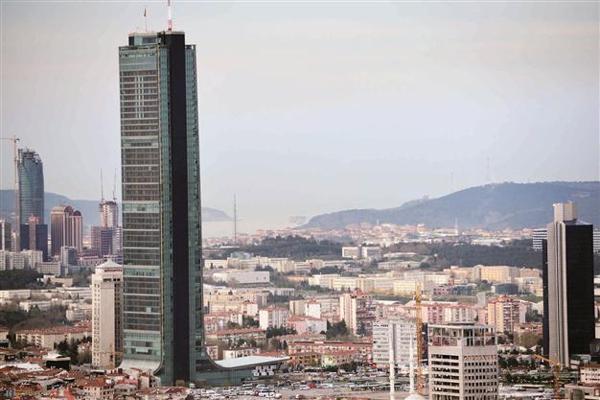Growth in Turkey expected to slow in 2014: EBRD
ISTANBUL - Reuters


DAILY NEWS Photo
Economic growth in Turkey is expected to slow down in 2014 after a better-than-expected performance last year, according to the European Bank for Reconstruction and Development’s (EBRD) latest economic report published on May 14.“Since the beginning of the year, the risk premium facing Turkey has increased, in part reflecting high political uncertainty, and the higher cost of finance is expected to weigh on domestic demand and growth,” the EBRD said in a statement to announce its revise announcement.
The EBRD, originally created to invest in the former Soviet bloc countries of Eastern Europe, also predicted the Ukraine crisis between the West and Russia will also hit export demand for Turkish goods and tourism income of the country.
“As a result, economic growth in 2014 is now expected at 2.5 percent, down from a January forecast of 3.3 percent, and after 4.0 percent in 2013,” the institution stated.
According to the EBRD, Turkish “growth is expected to recover somewhat in 2015 to 3.2 percent on the back of a favorable base effect, opening up the space for monetary easing, and to a certain degree elevated business and consumer confidence resulting in higher contribution of consumption and investment.”
The U.S. Federal Reserve’s bond purchase tapering has been cited as the most forefront risk threatening Turkish growth, as it “could weigh on the flow of foreign funds to emerging markets more than expected.”
It added, however, that Turkey had performed better than some had predicted at the peak of its market turmoil early in the year.
Ukraine crisis ‘threat to region’
The bank has begun its annual two-day meeting in Warsaw against the backdrop of the worst East-West standoff since the Cold War ended 25 years ago, after Russia annexed Crimea and allegedly began backing separatist rebels in eastern Ukraine.
The combination of the Ukraine-Russia geopolitical crisis and slowdowns in other big economies like Turkey meant growth in the region was now forecast to reach just 1.4 percent in 2014, rather than the 2.7 percent predicted in January, the EBRD said.
Russia’s economy was already slowing before its annexation of Crimea drew international sanctions. The extra strain means growth is now likely to flatten this year and reach just 0.6 percent in 2015, the EBRD said. It had forecast growth of 2.5 percent this year.
Worse still, Russia, the region’s largest economy, could fall into recession if more serious sanctions are imposed, the EBRD warned - and that could drag down growth worldwide.
Even under current conditions, Ukraine’s economy is expected to plunge 7 percent this year and not grow at all next year. If the crisis escalates, the damage would be even worse.
“Under a more negative scenario, the Russian economy would enter recession and output contraction in Ukraine would deepen,” the EBRD said in a report.
